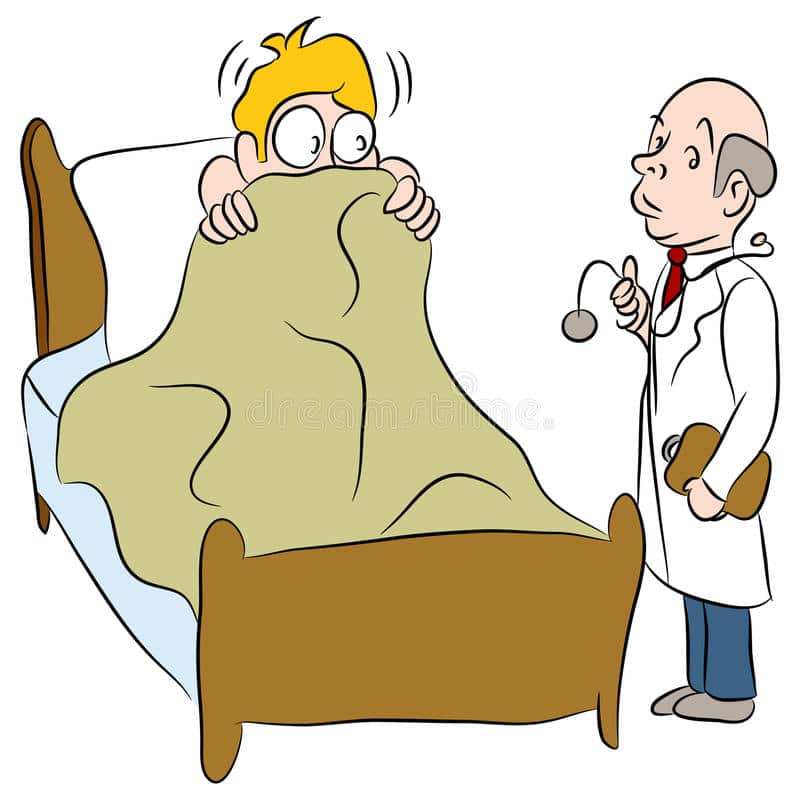Approximately 20 million Americans have a severe fear of needles. A study in 2015 showed that approximately 14% of people had avoided the dentist due to needle phobia, or trypanophobia. That’s a large portion of people forgoing necessary dental treatment due to fear of needles. If you’re reading this and have been dreading an upcoming procedure, please know you are not alone. A phobia of dentist needles is a very common fear, and understandably so.
With so many individuals dreading needles, it is reassuring to know that there are ways to cope with this fear and techniques that make the process much less dreadful than you are anticipating. This article is designed to help you understand the causes, symptoms, and techniques utilized to beat needle phobia at your next dental visit.
What is needle phobia at the dentist?
It’s important to understand that anytime a human is exposed to potential pain, there is a reaction of fear. The fear is a normal protective reaction. We all fear needles to some extent. The process isn’t exactly a picnic on a warm summer day. However, when our thoughts begin to over exaggerate a very transient pain in an unjustified view, that’s when a normal protective reaction can be considered a phobia.
According to Healthline, a website focused on providing health information, here are some symptoms that indicate needle phobia:
- Extreme panic attacks
- Fainting, nausea, dizziness
- Sweating
- Rapid heart rate, Increased blood pressure
- Difficulty sleeping before the procedure
- Physical resistance
What are the causes of trypanophobia?
Like many fears, many individuals do not understand why they have a particular fear of needles. Some people can even recognize that their reaction to needles is irrational based on the amount of discomfort. That’s acceptable and is common to many people’s fears. Everyone has something that they fear, and often it’s difficult to understand why that particular experience is the source of such large psychological anxiety. Because studies show that most phobics do not understand their fear of needles, many experts believe that other underlying issues from prior experiences may cause trypanophobia or fear of needles. Some experiences which may be linked to developing a needle phobia are:
- Needle phobia of close relatives that a child witnesses
- A prior traumatic or painful experience with a needle
- Being physically or emotionally restrained during a prior procedure that involved needles
- People with a fear of loss of control
- Fear of seeing blood
At our practice, we see many patients with a variety of dental phobias and severe dental anxiety. What we commonly see with the fear of dentist needles is that the phobia can evolve and grow over time if it is not properly addressed. The phobia may begin in childhood as a slight resistance to needles, but as time goes on, the phobia can become much stronger than that initial experience. By the time they present to our practice, their phobia feels like it becomes an entity of its own.
Patients with severe fear of needles often report they feel like their phobia controls their entire dental experience and has caused them to avoid the dentist for years after a certain number of failed attempts. The reality is the portion of the dental experience that involves needles is approximately 30 seconds. So we make great efforts to help patients overcome their fear of needles not to allow 30 seconds to destroy their entire dental health.
How to treat and overcome needle phobia at the dentist
Communication. The goal of any patient that has trypanophobia or any dental phobia should be to build rapport with a dentist. The dentist’s primary objective should be to understand the depth of the patient’s phobia by talking about it and listening to the patient. A dentist specializing in dental anxiety will have techniques to make the patient as comfortable as possible, but it all begins with communication and listening.
Accouterments. A dentist that sees a lot of dental phobic patients will have state of the art equipment that makes treatment more comfortable. The dentist and the office team will also go to great lengths to make the patient as comfortable as possible in the office environment. Many dentists will offer weighted blankets, pillows, soft music, or a television distraction. In our office, we have cinema style operatories and the patient can watch the movie of their choice with noise-canceling headphones. These accouterments allow the patient to feel more at home which overall has an enormous effect in reducing their anxiety.
The Patient Controls Pace. The dentist should create a sense of control for the patient. The system of control involves two main concepts: 1) Establishing a signal system with the patient that the patient can request a break at anytime 2) The dentist should reassure the patient that needles or treatment will never be forced.
Topical Anesthetic Gel. I believe that topical anesthetic is something that should be used for all patients before an injection, whether it is in the mouth or in the skin. The process is simple, a cotton swab with 20% benzocaine gel is gently rubbed on the area before the injection and allowed to settle for 30 seconds. The gel will numb the tissue before using a needle. The initial pinch is felt, but it may feel more like a mosquito bite than a needle. Many patients find it much more comfortable.
Sedation Dentistry. Sedation dentistry has revolutionized dentistry for patients with a variety of dental phobias, particularly fear of needles. Dental sedation has three main types: inhalational, oral sedation, and IV sedation. Depending on the severity of the trypanophobia, a particular type of sedation dentistry may be more advantageous to others. For patients with mild dental anxiety due to dentist’s needles, nitrous oxide is inhalational sedation that helps reduce pain and anxiety during a dental procedure. Nitrous oxide is completely reversible and does not require fasting or a separate driver to the office. Oral sedation involves taking one or a series of pills before using any needles. The sedation reduces anxiety and places the patient into a sedated dream-like state, lessening their anxiety to needles. Oral sedation is a good option for patients with needle phobia as it doesn’t require the use of intravenous. For patients with severe dental anxiety and severe needle phobia, a combination of oral sedation and IV sedation may be recommended. The technique involves sedating the patient with oral sedation before starting an IV. The level of dental sedation is maintained during the procedure by intravenous medications. For patients with needle phobia, incorporating a form of dental sedation is an assistance that helps them overcome their fear and receive the treatment they need.
The Most Common Cause: History of Bad Dental Experiences
A history of a negative dental experience can haunt people. That’s why it’s the number one most common cause of dental anxiety. Most people don’t fear the dentist that has only had wonderful dental experiences. It’s that one dental experience that you never forget that begins to engrain the fear over time, and you enter all future dental experiences with an armor, shield, and wall around you…whether it’s warranted or not. Anyone who has had pain or discomfort during previous dental procedures is likely to be more anxious the next time around.
There are a few common things that happen when a patient is fearful of the dentist. If you experience any of the below…begin by talking with your dentist. They should listen and help to understand what you need to make your experience pain-free. Some common occurrences with dental anxiety are:
- Trouble sleeping the night before a dental visit/appointment
- The temptation to cancel your dental appointment a few days before
- Feelings of nervousness which escalates while at the dental office waiting room
- Crying or feeling physically ill when at the dentist
- Intense uneasiness at the thought of, or actually when, objects are placed in your mouth during the dental treatment or suddenly feeling like it is difficult to breathe
- Fear of gagging
IV Sedation and Sedation Dentistry is the Equalizer
In some cases, an individual may benefit from a dentist who understands dental anxiety very well. These dentists, called sedation dentists, see anxious patients all day long. A sedation dentist will focus on scheduling a longer consultation to learn not only about your clinical conditions, but also who you are, your background, and any fears you have. You will develop a strong rapport with the sedation dentist before any treatment is done.
A sedation dentist will also have advanced comfort items such as a coffee or water, soothing spa-like amenities, hot-towels, warm blankets, cinema-style TVs with noise-canceling headphones, and extra team member is dedicated to your comfort. At a sedation dental practice, there are additional levels of local anesthesia, oral sedation, and IV sedation where you can actually sleep through your treatment. A patient undergoing dental sedation will be able to complete their treatment comfortably and efficiently in fewer appointments.
Dental sedation and sleep dentistry with an experienced sedation dentist is also incredibly safe. The patient is always breathing on their own control, and the medications used are completely reversible. Most patients find that as they build trust with their sedation dentist they eventually no longer require sedation for their future dental treatment.
Overcome needle phobia at the dentist: Putting it all together
So there you have it. The above techniques all help to overtime reduce the fear of needles. I know it’s easier said than done, but the best technique to overcome any phobia is to begin trying. The good news is a study in 2004 showed that needle phobia is inversely related to age. By beginning to develop more positive experiences with the use of the above techniques, you will desensitize yourself to your fear and your fear of needles will begin to evaporate.
After treating thousands of some of the most dental phobic patients in the country, I know that every patient feels their fear is the worst, and they feel their fear is unbreakable. However, over time, we slowly build trust and establish several positive experiences to override even the most extreme phobias. It’s worked for others, and I have faith it will work for you. All you need to do is commit to overcoming the fear and take one step at a time. Contact us today and discover how we can help you overcome any fear of needles.
Aesthetic Smile Reconstruction is a reconstructive and sedation dentist in the Boston Metro area. We treat patients from all over the country with the most complex fears and conditions. Dr. Charles Sutera is a national leader in smile makeovers with a particular focus on treating severely anxious and dental phobic patients. His practice is recognized as treating some of the most complex cases on the east coast due to renowned expertise in aesthetic dental reconstruction, TMJ function, and board certification in several types of dental sedation.


